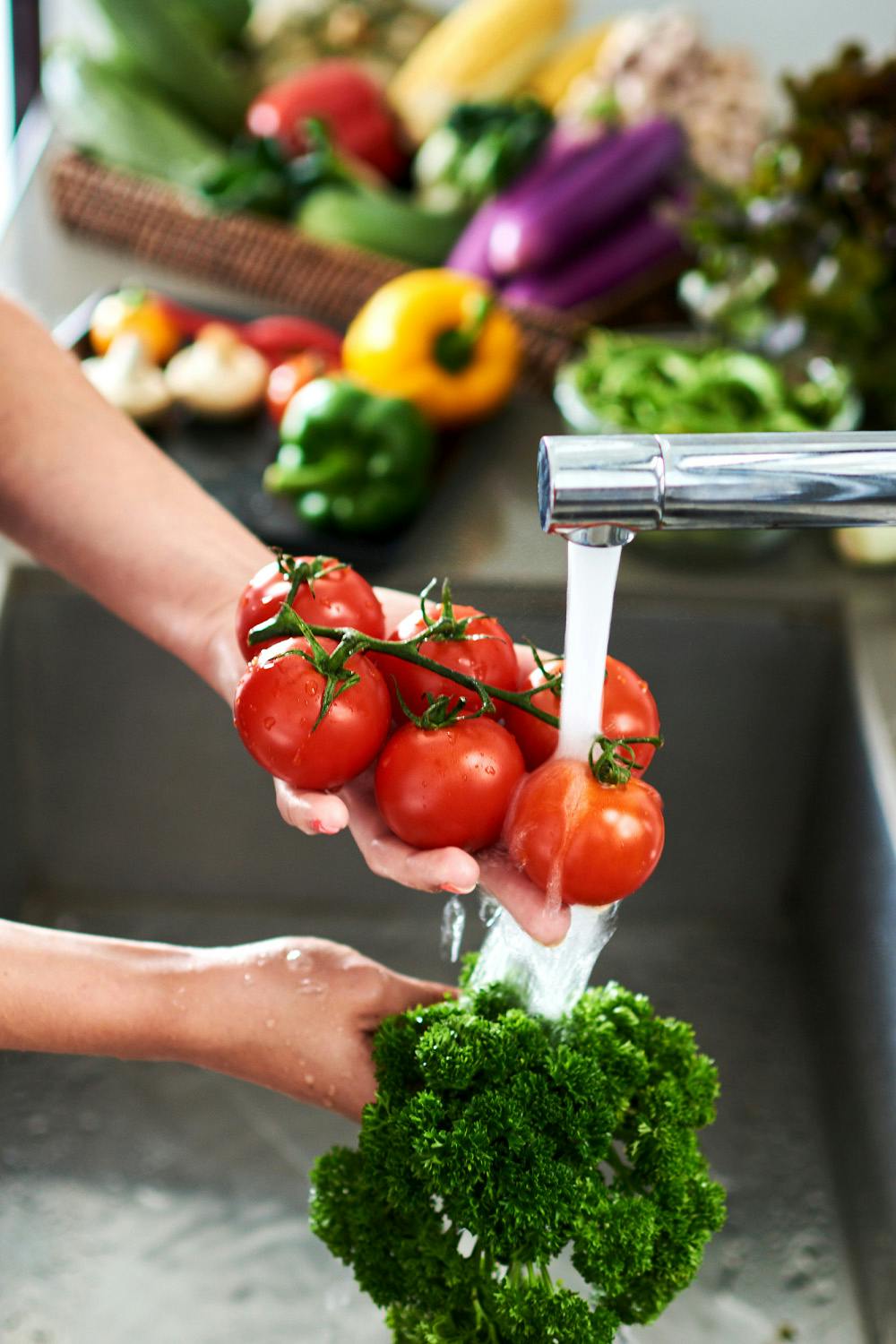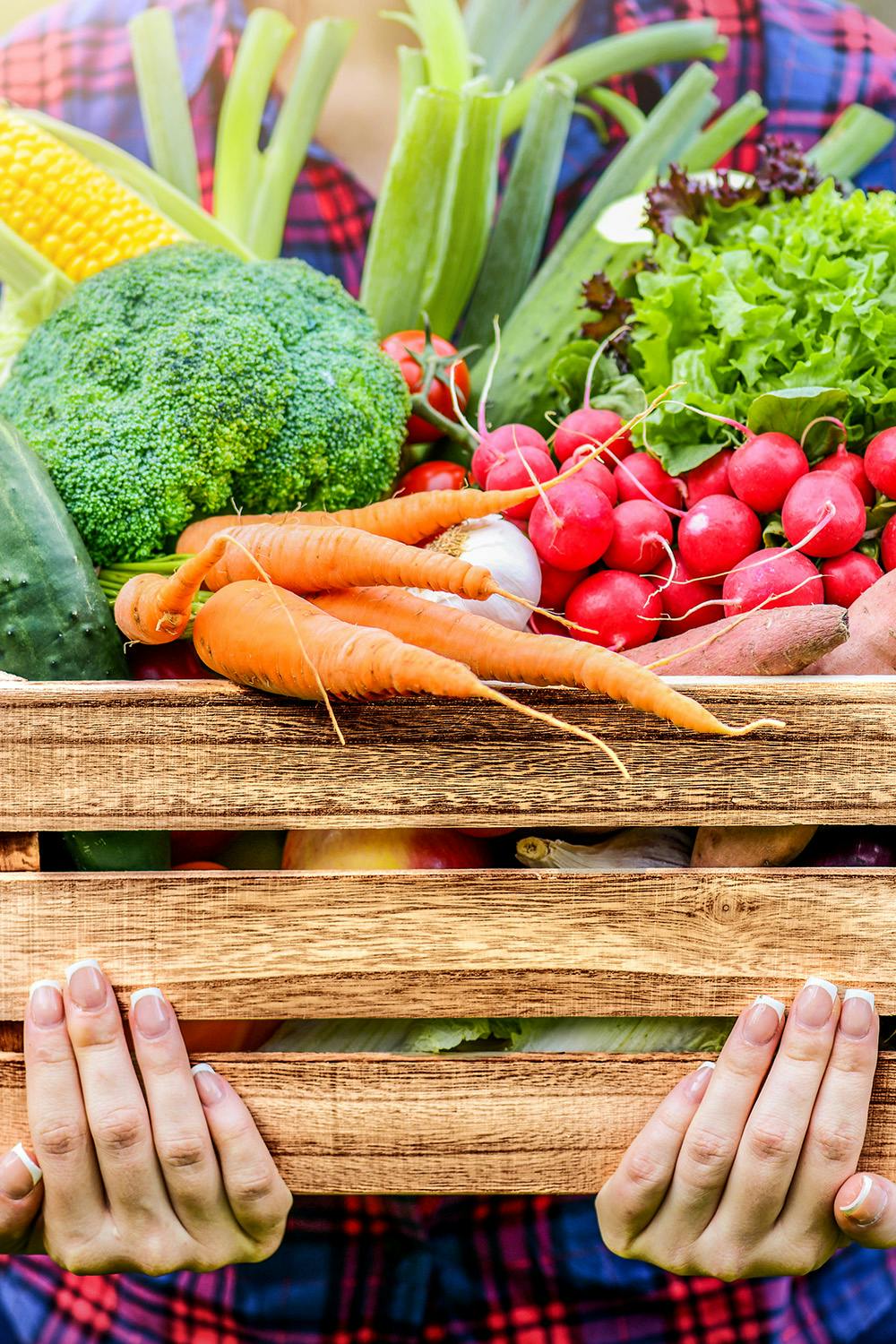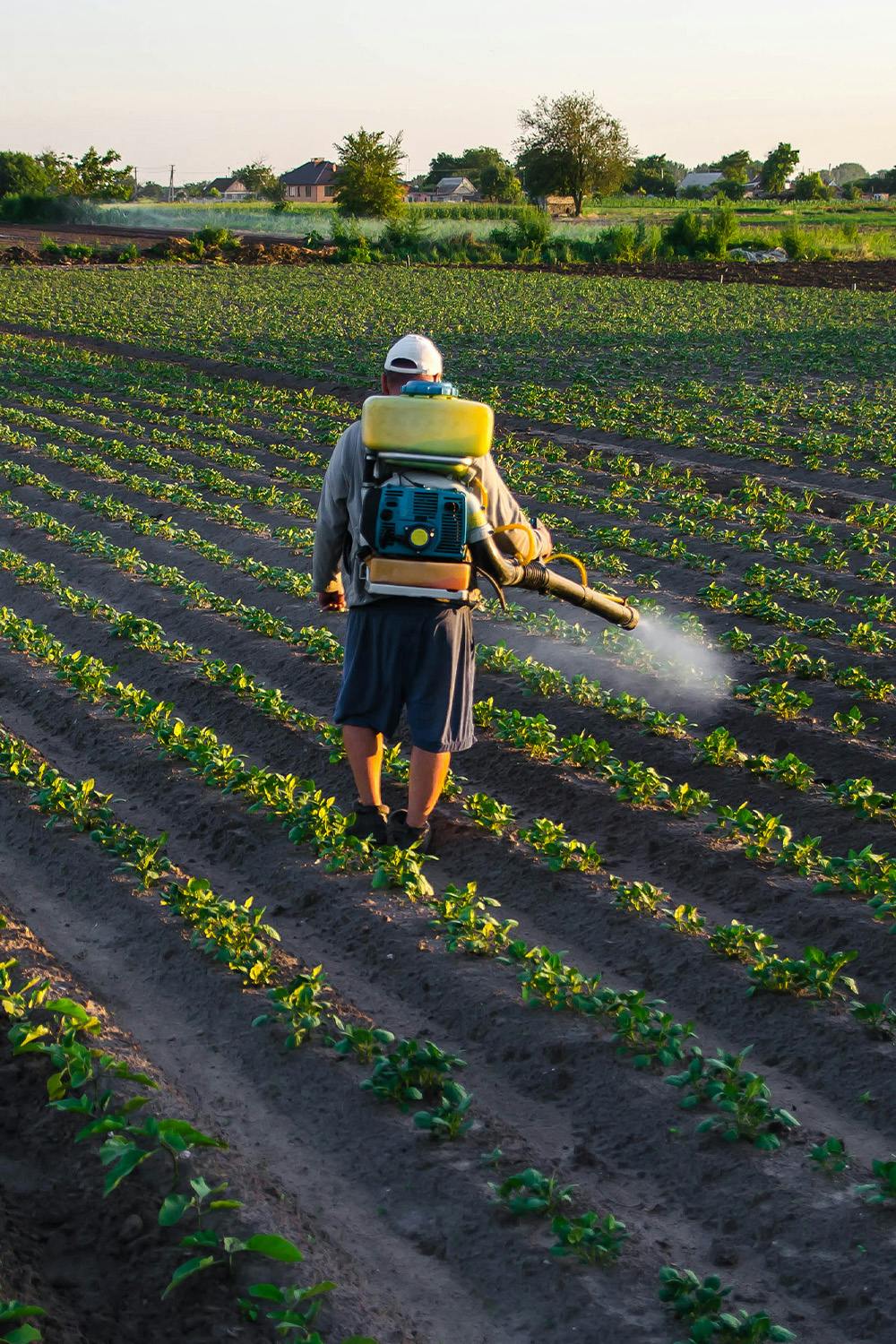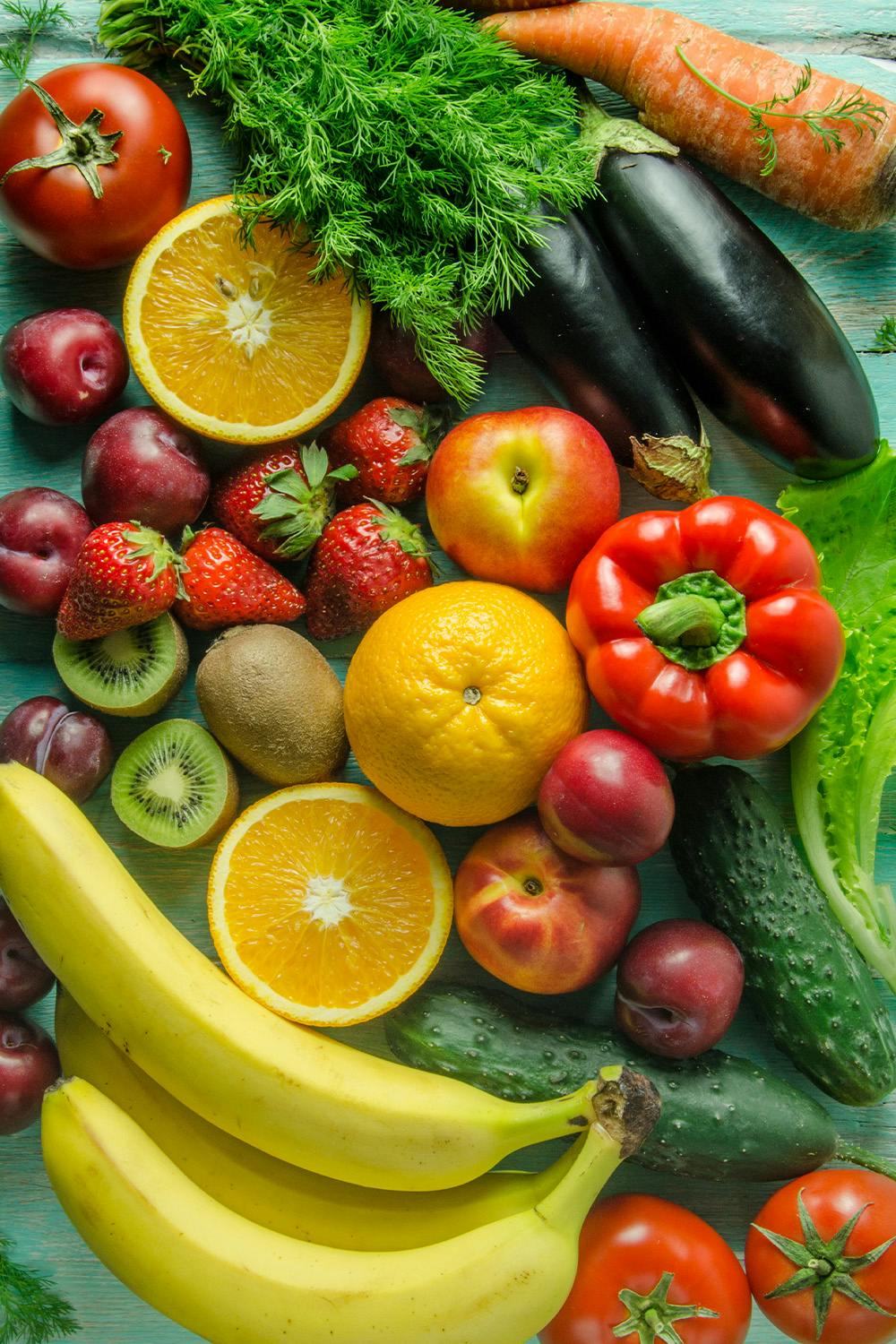There’s a common belief that rinsing fruits and vegetables will rid them of pesticides, and therefore reduce one’s risk of cancer. A popular oncology dietician, Nichole Andrews, posted a TikTok to dispel that belief.
“You’re washing your fruits and veggies to get rid of the bacteria, not to get rid of herbicides and pesticides,” Andrews says in her video. “The herbicides and pesticides are at very very safe levels … on both conventional and organic.”
Should you really be concerned about pesticide residue on produce?

The benefits of eating fruits and vegetables far outweigh any risks. “Pesticide residue on conventional and organic produce is found in tiny, low-risk amounts that are not linked to any negative health effects,” Healthline reports.
But some studies have linked “increased exposure” to pesticides to certain types of cancer, according to Healthline.
Most Americans aren’t eating enough fruits and vegetables. The American Heart Association recommends one have four to five servings of both fruits and vegetables every day; it offers a guide on how to incorporate more into one’s diet.
So how do you remove pesticides from food?

Healthline backs up what Andrew says about washing produce with water, noting that “washing produce with water may not be the most effective method for removing pesticide residue, as pesticides often penetrate deep into fruits and vegetables and may require the use of commercial cleaning solutions.”
If you remain worried about pesticides on produce. There are a few steps you can take to limit your exposure.
As Healthline noted, commercial cleaning solutions are an option. There are a few other methods, too. Another method to removing pesticides that Healthline recommends is cooking the vegetables as well as peeling and/or trimming the fruits and vegetables.
However, there are some downsides to this as doing all these things can decrease the nutritional value of these foods.
Organic produce vs. conventional produce

In her video, Andrews also talks about organic produce vs. conventional produce.
“Organics is marketing. It’s like a big gaslight, all right. It’s not more nutrient-dense. It’s not like the food’s safer, even the person who created organics said that. This isn’t about food safety. It’s just a different kind of farming,” she says.
This is where things get iffy.
According to Healthline, “Studies comparing the nutrient content of organic and non-organic foods have had mixed results. … However, evidence does suggest that foods grown organically may be more nutritious.”
Farming methods

Andrews dives into the farming methods of both.
“They use different stuff, and they’re still using pesticides,” she says of organic farming.
This is true; organic produce does not mean it is pesticide-free. Pesticides and herbicides made from natural sources, such as biologically occurring pesticides, are still utilized on these kinds of farms, per the Environmental Protection Agency.
However, “compared with produce grown using usual (conventional) methods, organically grown produce has lower levels of pesticide residue,” according to the Mayo Clinic.
What about those produce sprays?

Andrews adds that she thinks produce sprays are a waste.
“When you wash your fruits and veggies, you don’t need any of the sprays,” she says. “You don’t need bleach. You don’t need vinegar. And don’t put them in your sink, because if you put them in your sink, now they’re being immersed in all the bacteria that’s in your sink.”
She recommends just rinsing produce under running water. “I know it sounds too good to be true, but that’s all you got to do. Eat more fruits and veggies. You don’t need to buy organics. You don’t need to worry about the pesticides. Just rinse them, and eat them,” she recommends.
The U.S. Food and Drug Administration actually recommends avoiding produce sprays and washes.
“The FDA recommends washing fruits and vegetables in cold, drinkable water,
a representative for the FDA told HuffPost. “Generally, water rinses off any residue or chemicals that may be on the outside of fruits and vegetables. Using fruit/vegetable washes or dish soaps may result in residue left on the produce and can also change the flavor of your produce.”
@oncology.nutrition.rd Just rinse and eat! Easy way to reduce cancer risk! Say goodbye to confusion and uncertainty. Join my 1:1 coaching program today, regain control over your diet, and get back to living your life to the fullest! LINK IN BIO TO APPLY for 1:1 support TODAY!
#breastcancerjourney #lungcancerawareness #bravetheshave #lymphomaawareness #livercancer #kidneycancer #prostatecancerawareness #radiationtherapy #hormonetherapy #sarcomaawareness #cancerresearchUK #pancreaticcancer #lymphoma #ovariancancer #prostatecancer #cancerfree#cancerwarrior#cancerfighter #oncology #breastcancersurvivor #cancerresearch #chemotherapy #chemo #cancerpatient#cancerawarenessmonth #oncologynurses#cancercure#cancernation #breastcancercare #cancermotivation ♬ original sound – Nichole | Oncology Dietitian
Several viewers commented on the video that learning this information felt “liberating” to them, and put their mind at ease when it comes to purchasing produce at their local market.
“Thank you for this!” one commenter wrote. “I honestly thought I needed all those fancy sprays to clean my fruit and veggies!”
“This feels liberating,” another commenter wrote.
The Daily Dot has reached out to Andrews via comment on the video as well as TikTok direct message.
The internet is chaotic—but we’ll break it down for you in one daily email. Sign up for the Daily Dot’s web_crawlr newsletter here to get the best (and worst) of the internet straight into your inbox.


